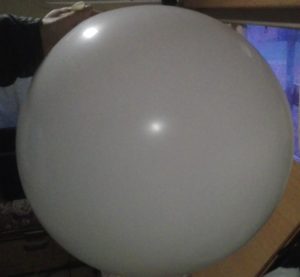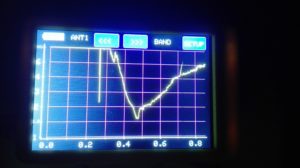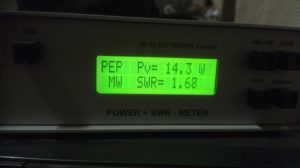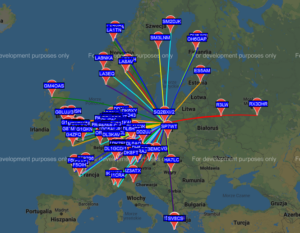Below are the SAQ videos of the transmitting on Alexanderson’s day (05.07.2020) on VLF 17.2kHz:
Two transmissions took place:
RX: SQ2BXI (Gdańsk Poland) and Ado (Kosice Slovakia)
TNX Ado!
Klub Niezwykłych Łączności
Below are the SAQ videos of the transmitting on Alexanderson’s day (05.07.2020) on VLF 17.2kHz:
Two transmissions took place:
RX: SQ2BXI (Gdańsk Poland) and Ado (Kosice Slovakia)
TNX Ado!
SAQ transmision on Alexanderson Day, June 30th, 2019:
10.30 (08.30 UTC) Alternator is started
11.00 (09.00 UTC) Transmission of a message
13.30 (11.30 UTC) Alternator is started
14.00 (12.00 UTC) Transmission of a message
More info:
Encouraged by our last experiments with ground dipoles we decided to do a transmit experiment with this antenna on VLF 8.270kHz, 36km (36000m) wavelength. Thanks to Fab LAB Trójmiasto we had a great location on the see on a cliff near the Baltic Sea in Gdynia. Our goals for this experiment were:
Autumn and winter are great for experimenting on the medium wave band. We’ve tried a 150m baloon-lifted antenna.
Our objectives were:
The results are encouraging. This is an analysis of the experiment:

2. It’s best to use a copper-covered welding wire. It’s strong enough and very light. Unfortunately aluminium wire is not strong enough. It’s also best not to use wires covered in isolation, because of their additional weight.
3. If the antenna is to be used during the night, there has to be some means to show the baloon position. We think that it is sufficient to use a simple pulsating LED light powered by a watch battery.
4. The antenna was tuned to resonance with an antenna analyzer by varying the antenna length. This way we were able to quickly determine the correct length of the wire. The SWR varies with the antenna position relative to earth, the range is about 1.3 – 2.3.

5. For ground we used an earthing rod in a 13m deep well. The resistance of this ground is 37Ω at 70Hz, at 472kHz it is probably much higher. The antenna impedance was about 200Ω, so we needed to use a 1:4 transformer to match the antenna. The theoretical impedance of a quarter-wave vertical is around 35Ω, so the rest (200Ω-35Ω=125Ω) is due to loss. This calculates to antenna efficiency around 15%, so we need around 15W to get to the 1W EIRP legal limit.

6. The signal was received by many european stations. Unfortunately the baloon was destroyed by very strong wind and rain before the transatlantic propagation time.

7. The optimal way of generating hydrogen in an amateur setting is the reaction betweem aluminium and NaOH (sodium hydroxide) solution One should not use aluminium dust or fine filings, because the reaction is too quick and overheats. Aluminium soft-drink cans are covered with paint, and the reaction goes too slowly in this case. Larger aluminium shavings are optimal. NaOH can be purchased as pellets used for unclogging pipes. The generator consists of three parts: a hydrogen generator (bottle with the NaOH solution and aluminium), a scrubber (bottle with water that the gas passes through) and preferably a dessicator (third bottle with solid dessicant). You should wear protective gear at all times, and take measures not to harm yourself. A concentrated NaOH solution will cause permanent damage to eyes and the rest of the body. If in doubt, consult a chemist (both of the founders of klubnl.pl have a masters degree in chemistry).
A scheduled transmission from Grimeton Radio / SAQ on Christmas Eve, December 24, 2018 was announced via email:
In the morning of Christmas Eve, December 24, we will try to start the old Alexanderson 200 kW transmitter, from 1924 and send out a Christmas message on VLF 17.2 kHz CW. The transmitter will be tuned up from around 08:30 (07:30 UTC) and a message* will be transmitted at 09:00 (08:00 UTC).
A roaring machine, morse code and Irish folk music – celebrate the UN Day of October 24 at the World Heritage Site Grimeton!
Man’s quest for contacts and faster relationships between each other is tireless. A proof of this are the many attempts made to put a telegraph cable on the bottom of the Atlantic before the seemingly impossible project was finally landed – the connection between Europe and America was established, from Ireland to Newfoundland, and opened for telegram traffic in August 1866 .
We celebrate this great event in international relations by sending out a peace message to the world with the long-wave transmitter SAQ and then a concert in the Irish folk spirit with the Varberg band Green Hill.
Evening program
18.00 The world heritage opens
18.30 (16.30 UTC) all visitors are greeted welcome and the long wave transmitter SAQ is started
19.00 (17.00 UTC) a peace message is sent out*
19.15 (ca) concert with Green Hill
Free entrance. Arrive in time as there are limited amount of seats.
Welcome!
The transmission is on 17,2 kHz CW.
You can also watch a live video stream of the transmission on www.alexander.n.se.
No QSL-cards will be given this time and no List of Reports will be constructed but we accept shorter Listeners Report to e-mail [email protected].
*The world heritage site Grimeton is a living cultural heritage. All transmissions with the long-wave transmitter SAQ are therefore preliminary and may be cancelled with short notice.